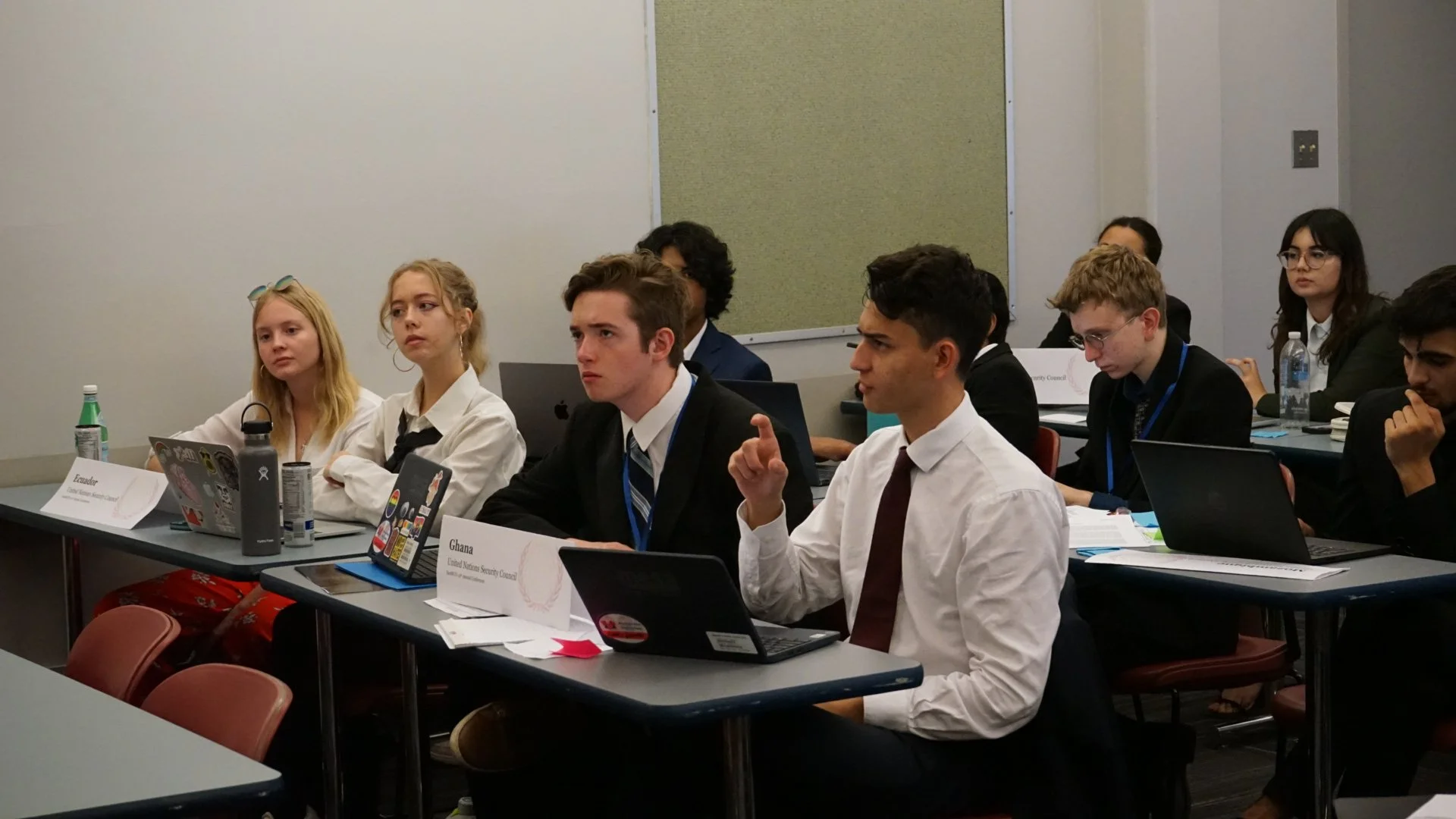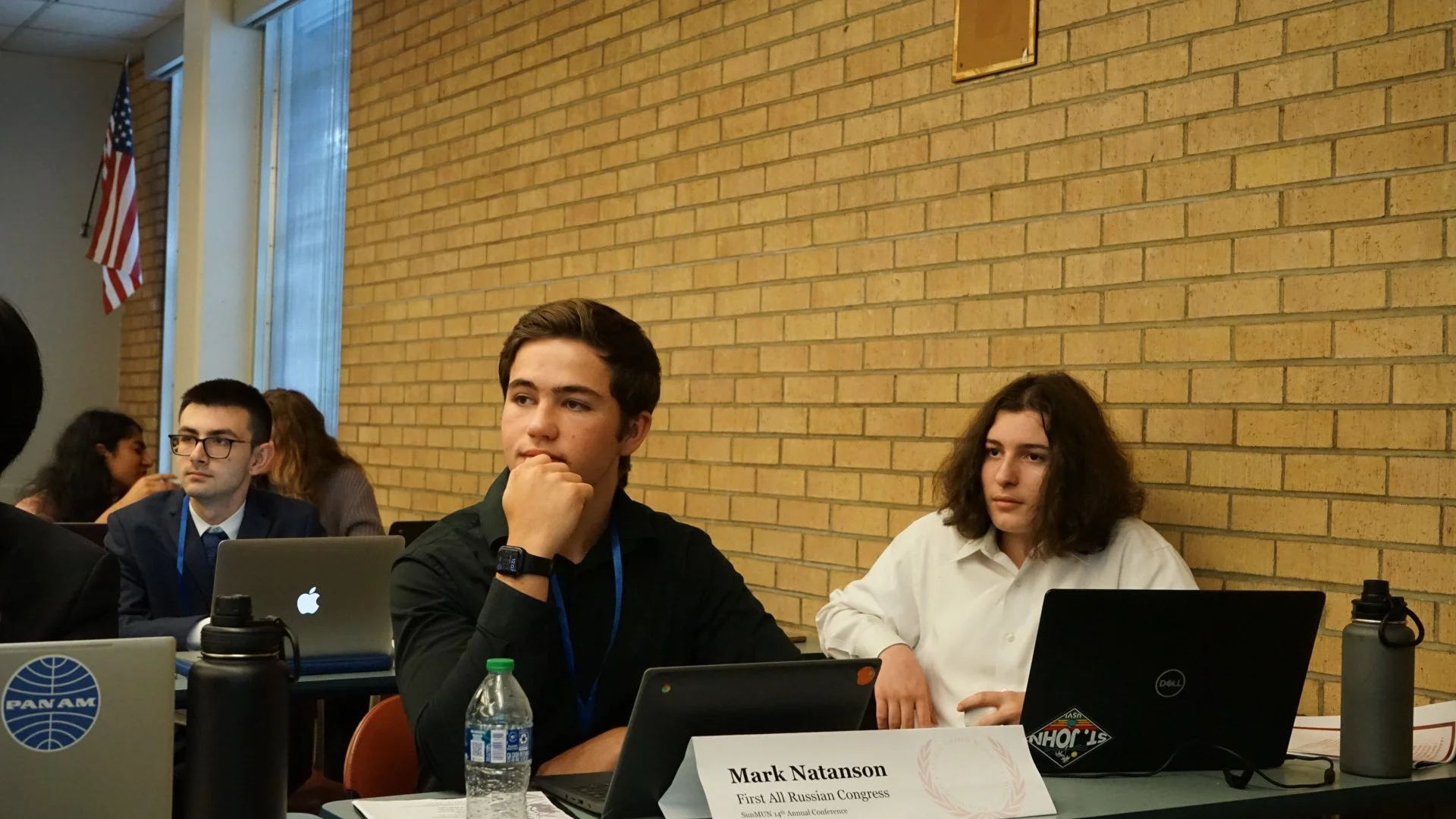
Policy Paper Competition
This year for our conference we are not requiring Policy Papers. Instead, we will be hosting a separate competition after the conference for best Policy Papers.
Submissions are open until December 3rd.
What are the rules and deadlines for the competition?
On November 22nd, the submission will open for this competition. Delegates will be able to submit through a link on this page until December 3rd. On December 12th, awards will be announced. There will be one best policy paper award per committee as well as one overall best Policy Paper of the Conference award. The best Policy Paper of the Conference award is the best policy paper across all committees. If less than 7 delegates of a committee submit policy papers, that committee will not have a committee policy paper award, but every submission would still be able to win best Policy Paper of the Conference award. The delegate who win the best Policy Paper of the Conference will also win a pizza party for their school. If there are any questions, please do not hesitate to contact modelunasu@gmail.com
What do they look like for traditional committees?
For SunMUN XVI’s traditional committees (ie. the General Assembly, the Economic and Social Council, the Human Rights Council, the World Health Assembly, and the Assembly of the African Union, etc.), policy papers are two-pages, three-paragraph essays. It is one page per topic.
Your first paragraph should detail a real-world modern history of your paper’s topic. Name specific treaties or resolutions about it that have already been developed, and talk about existing institutional frameworks—understanding what work the international community has already done is always the first step to making new progress!
Your second paragraph should be about what work your country has done. What international agreements has your country signed on to? Has your country done work at the national level on the topic? Numbers and statistics are a perfect resource to lean on when developing this paragraph: this is your opportunity to show why your country has a leading part to play on the international stage.
If the second paragraph is about why your country’s voice is so important, the third paragraph is about how. From the perspective of your country, what are your proposed solutions? What can others expect to see from you in committee, and why are your solutions best for the international community? This paragraph is both the crux of your paper’s argument and its conclusion: make it strong!
All three paragraphs should fit on one single-sided page. It’s a lot to fit in such a small space! How you prioritize what to show and what to explain is crucial to building a successful policy paper—be sure to think about the essential components of your message as you craft your writing.
The First Committee on the Chernobyl Disaster is a Traditional Policy Paper, except delegates cannot use information from after the committee start date.
The Security Council follows the same requirements as Traditional Policy Papers, but there is only one topic so only one page.
What do they look like for non-traditional committees?
For our non-traditional committees (eg. the International Court of Justice and the Seven Years’ War), policy papers look slightly different. You can find per-committee instructions below.
International Court of Justice:
For ICJ policy papers, delegates must answer all guiding questions within the Issue Book. There is no page limit although, delegates must follow all other formatting rules and cannot go over a 300 words per question.
Seven Years’ War (JCC):
For Seven Years’ War committees, delegates will write one two-page policy paper comprised of four paragraphs. The header should have the character’s name and the next line have the committee name - both should be completely capitalized. All other formatting information from our formatting section which does not conflict with this paragraph should be followed.
The first paragraph should have a short character bio from a first-person perspective as well as the character’s history, major accomplishments, credentials, etc. It does not include any information from beyond the time period of the committee. The second paragraph is an accurate and detailed description of topic 1 from the character’s perspective including specific current and past policies, documents, actors, details, or implications. The third paragraph is the same as the second paragraph but for the second topic. The fourth paragraph outlines detailed suggestions for future action on the part of the committee in-line with the character’s current stance on the issue including specific actors, recommendations, or calls to action.
Formatting?
All committee policy papers must be submitted as a single document subject to the following formatting rules:
two-page PDF
File name should look like “Committee_Country”
Single-spacing
1-inch margins (left, right, top, and bottom)
12pt Times New Roman font
Justified text
Fully capitalized header containing the official name of your country or character and your committee name
For traditional committees, each page should also state the topic addressed on that page in the paper’s header below the committee name
Resources
UN Digital Library
The UN Digital Library is the source of all digital content produced by the United Nations, from press releases to committee work to facts and figures.
UN Index to Proceedings
The UN Digital Library is an excellent tool for finding out exactly what’s been accomplished by UN committees straight from the mouths of diplomats.
US Institute of Peace
The US Institute of Peace publishes articles, data, and figures in view of its mission to end violence worldwide. It is an excellent resource for information on human rights and equitable development in states all over the world.
CIA World Factbook
The CIA World Factbook gives broad overviews of both states and sub-state actors across historical, demographic, and economic axes.
Human Rights Watch
The Human Rights Watch is one of the foremost international non-governmental organizations focused on ensuring human rights for all. Here, you can find articles and data on both states and non-state groups.
FAQs
-
Our Security Council, General Assembly, Economic and Social Council, Human Rights Council, and World Health Assembly are all traditional committees—their rules of procedure and operations function in the classic Model United Nations fashion.
-
Submit your papers by December 3rd, 2025.
-
Nope! SunMUN XVI does not require delegates to submit sample resolutions alongside their policy papers.
-
At the top of this page, there is a submission button. Please click that button and fill out the form.
-
For traditional committees, it should look something like:
UNITED STATES OF AMERICA
GENERAL ASSEMBLY
REMANDING ILLICIT FISSILE MATERIALSFor a non-traditional committee like “Seven Years’ War” it should look like:
SEVEN YEARS’ WAR: FRANCE
JEAN PÂRIS DE MONMARTEL




